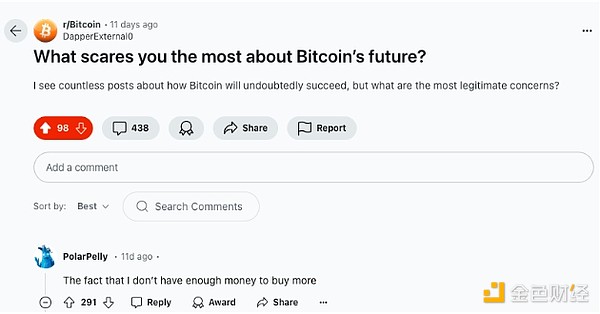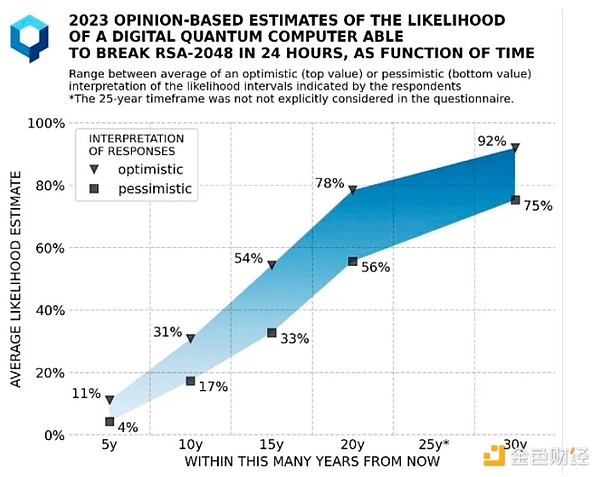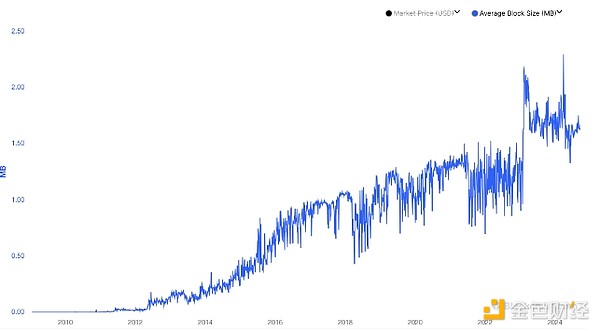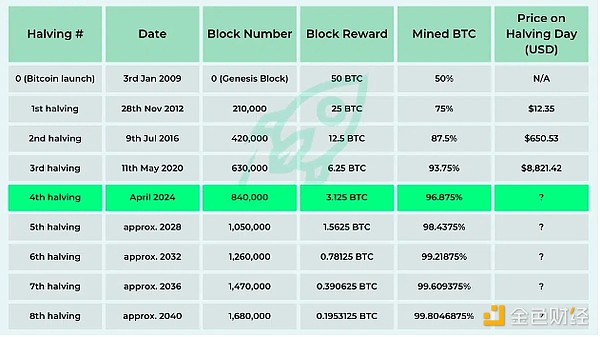Author: Helen Partz, CoinTelegraph; Compiled by Wuzhu, Jinse Finance
BTC has achieved great success since its birth, but some people in the community are still worried about its future.
On September 14, a Redditor on the Bitcoin subreddit asked the community a question about what the most reasonable concern about the future of BTC is.

What worries you most about the future of Bitcoin? Source: Reddit
The reply “I don’t have enough money to buy more” received the most likes, but many Reddit users still expressed their concerns. Cointelegraph collected some of the responses and contacted some industry executives to understand whether these concerns are justified.
Concern 1: Quantum computing or artificial intelligence could one day destroy Bitcoin
In the post, some community members expressed concerns about the impact that developments in quantum computing or artificial intelligence could have on Bitcoin’s potential for future hacking.
Quantum computing is a new field of computer science that focuses on quantum mechanics to solve problems that are beyond the reach of the most powerful computers. Companies such as Google have spent billions of dollars building quantum computers and plan to launch one by 2029.

Estimated likelihood of a quantum computer cracking the RSA-2048 encryption algorithm. Source: Forbes
Trezor’s Bitcoin analyst Lucien Bourdon said that while Google’s first quantum computer could be available in four years, it is “a long way from being a real cause for concern.”
“The Bitcoin community has proven its ability to adapt when necessary,” Bourdon told Cointelegraph, adding that Bitcoin’s decentralized nature allows for the implementation of new quantum-safe algorithms.
The analyst noted that once quantum computing becomes a reality, it could introduce risks that are not unique to Bitcoin, saying:
"In theory, quantum computers could break some encryption systems, but this would also disrupt many industries beyond Bitcoin - such as internet security, banking, and military encryption."
Quantum Economics founder Mati Greenspan expressed a similar view, saying that the Bitcoin network can "adapt quickly to new technologies, especially when a significant threat is detected."
As for possible risks associated with artificial intelligence, Bourdon believes that the technology is more likely to enhance Bitcoin by improving its infrastructure and educational tools.
"One concern among Bitcoin users, however, is that AI could make phishing attacks more convincing. But those who use hardware wallets and keep their recovery seeds safe are not vulnerable to such attacks," he said.
Concern 2: Concentration of miners and whales poses a threat to market manipulation
Some Reddit users also expressed concerns about the increasing concentration of Bitcoin miners and whales, which could raise concerns about market manipulation.
According to Greenspan, BTC’s excessive concentration in the hands of a few could indeed lead to market manipulation, but it could be short-term.
“In the long run, the invisible hand will always solve the problem,” the founder of Quantum Economics said, adding:
“The beauty of Bitcoin is that anyone, rich or poor, can buy or sell any amount of Bitcoin at any time.”
Oobit President Phillip Lord also previously mentioned that the concentration of BTC holdings could have an impact on the market. But he stressed that owning a large amount of BTC “does not mean you can directly control the protocol or change its code.”
Concern 3: Bitcoin’s blockchain size could lead to reliance on centralized proxy services
“The growing blockchain size means that fewer and fewer participants and devices can participate in the network,” one Redditor wrote, suggesting that this could lead to “reliance on centralized proxy services.”
Satoshi Nakamoto, Bitcoin’s anonymous creator, capped BTC block size at 1 MB in 2010, apparently to stop a flood of junk transactions. Bitcoin Core developers raised the cap in 2017 with the introduction of the Segregated Witness (SegWit) upgrade, allowing blocks to expand to 4 MB.

Bitcoin block size from launch to September 2024. Source: Blockchain.com
“Large blockchains with higher transaction throughput may offer more transactions per second, but they will hurt decentralization,” said Trezor’s Bourdon.
He stressed that Bitcoin’s block size growth is limited, with an average block size of 1.8MB, and the maximum average growth in blockchain size is about 250MB to 300MB per day. “The Bitcoin blockchain can only grow in a predictable and controllable way,” he noted. “This makes the blockchain manageable for full node operators, thus maintaining decentralization.”
Concern #4: Stricter KYC Policies
Some Reddit users have expressed concerns about increasingly strict Know Your Customer (KYC) regulations by governments around the world.
Bourdon said that KYC policies are often cited as a concern by Bitcoin users, but such policies do not pose a direct threat to Bitcoin itself.
“Bitcoin is designed to ensure that individuals can send and receive Bitcoin directly between wallets without permission,” the analyst said. He then expressed confidence that Bitcoin will be “free from government control” as it grows in popularity, saying: “Over time, the decentralized nature of Bitcoin is likely to continue to withstand any attempts at strict control, allowing users to maintain financial independence.”
Concern 5: Mining rewards will one day become ineffective to support BTC security
By design, Bitcoin is set to cut its mining reward in half every four years, a process known as a Bitcoin halving event. The most recent BTC halving occurred on April 20, 2024, with miner rewards falling from 6.25 BTC per block to 3.125 BTC.

Bitcoin halving table. Source: Changelly
Bourdon mentioned that Bitcoin miners are not only rewarded through block subsidies, but also from transaction fees, which have proven to be adaptable.
“While the block subsidy will be much smaller in 20 years, if Bitcoin becomes widely adopted as expected, and the network will rely more on transaction fees, those fees will increase to continue to incentivize miners,” he said.
“If miners are not profitable or unhappy with their returns, they will shut down their machines, reducing the overall hash rate and increasing profitability for other miners,” said Quantum Economics’ Greenspan, adding:
“Therefore, as long as Bitcoin remains valuable, miners will work to protect it, at least for the next 100 years.”
 JinseFinance
JinseFinance
 JinseFinance
JinseFinance JinseFinance
JinseFinance JinseFinance
JinseFinance JinseFinance
JinseFinance JinseFinance
JinseFinance JinseFinance
JinseFinance JinseFinance
JinseFinance Future
Future Cointelegraph
Cointelegraph Cointelegraph
Cointelegraph